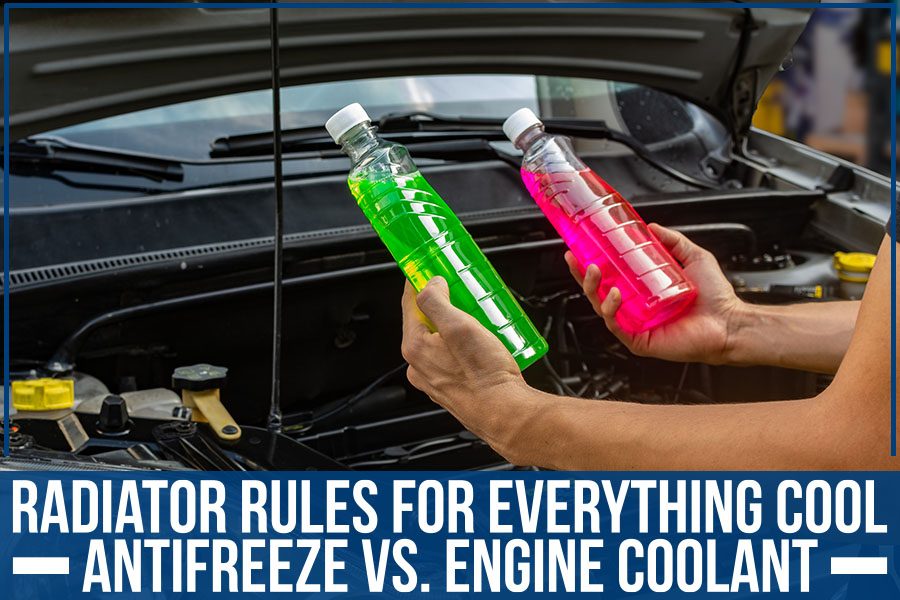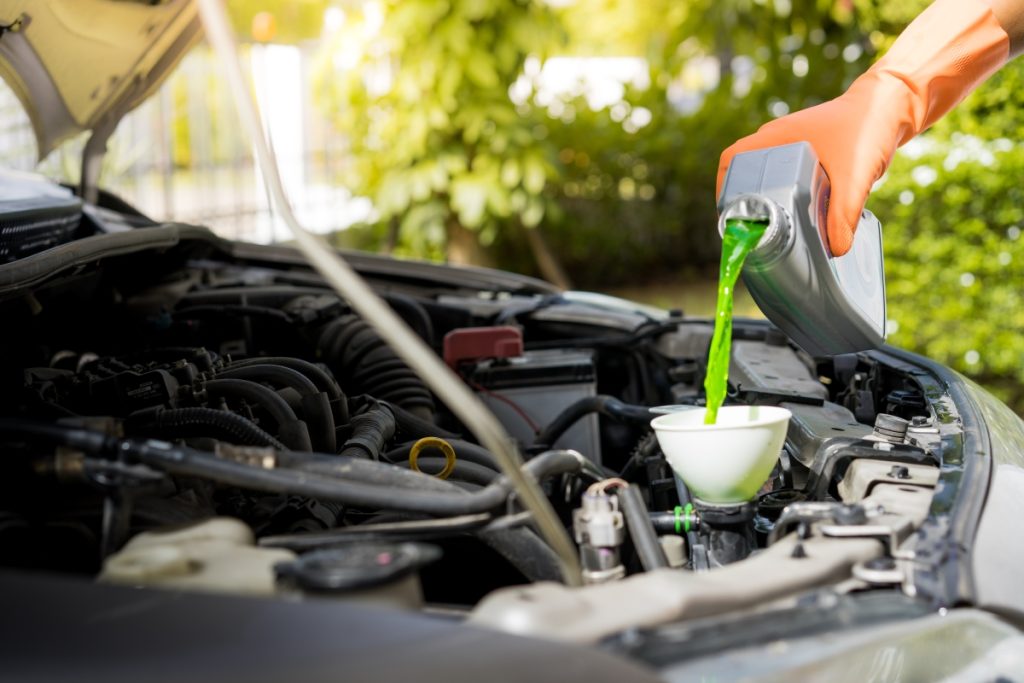
Key Takeaways:
- Coolant or Antifreeze is essential for your car because it helps regulate your engine’s temperature.
- Without antifreeze, water could freeze and split radiators or break engine cases.
- Radiator fluid also prevents scale formation and corrosion.
- Using a compatible coolant or antifreeze is essential for car security.
- Don’t risk your radiator and parts warranty using the wrong fluid type.
- The ideal strength of the coolant mixture should be 50/50 water and antifreeze.
- Mike Patton Ford Lincoln offers car maintenance and repair services to customers in Pine Mountain, GA, and the surrounding areas.
Long gone are the times of putting water in your car’s radiator, and doing so these days could damage your engine. So, what can you put in your radiator now? Radiator fluids are classified into two broad categories: antifreeze and engine coolant. Oh, yes, they are different liquids serving different purposes. Mike Patton Ford Lincoln will discuss the differences between antifreeze and engine coolant and explain why using the right product in your car’s radiator is essential. We will also tell you how to choose the right product for your vehicle. So read on to learn more!
What Is Antifreeze, And What It Does?
Antifreeze prevents the water in a vehicle’s engine cooling system from freezing. It keeps the water from forming ice under typical winter weather conditions.
In addition to reducing the freezing point, it also raises the boiling point of the engine coolant. Under a pressurized system, a higher evaporation level of the water content minimizes the likelihood of overheating almost to zero unless a malfunction or damage occurs.
Distinction Between Antifreeze and Coolant?
Antifreeze is a high potency additive, typically including glycol and freezing inhibitors. Some types must be cut with water at a suitable strength before use. The weakened solution is commonly called coolant.
Antifreeze is a lower-temperature version of coolant used to protect your engine in frigid conditions. It prevents the water in your cooling system from freezing and raises the coolant’s boiling point, which helps to prevent overheating.

Why Do I Need Antifreeze?
Antifreeze is vital for your car because it helps regulate the engine’s temperature in cold and hot environments.
Modern automobiles have smaller cooling systems that operate at higher temperatures and pressures than in the past. As a result, using the correct additive is essential.
Without antifreeze, the water in your car could freeze and split radiators or break engine cases.
Radiator fluid also serves other purposes, like it prevents scale formation and corrosion, helping to keep your automobile in excellent condition. Also, please read our blog on the signs that your radiator will not last long.
Type of Coolant to Choose
As recommended by the car’s manufacturer, the correct type and concentration of coolant needed for your specific vehicle model should be displayed in the user’s handbook.
You should inquire with a car dealership if you don’t have a handbook.
How Do I Check What Type Of Coolant Is In My Car?
Determining the type of coolant in your car without professional help can be tricky, as the color of the more excellent fluid isn’t always indicative of its quality or kind.
If you’re unsure whether you used the proper type of coolant, it’s best to bring it to the car dealership for a professional checkup. Antifreeze is a dangerous chemical, so it’s better not to expose yourself to this hazard without proper safety measures.
Only refill the radiator with the recommended coolant type and ensure it is at the correct dilution level.
How Do I Test My Antifreeze Strength?
A hydrometer or a refractometer is used to measure the strength of your antifreeze.
Hydrometers are simpler to use but less reliable than refractometers.
If your garage has these tools, you can quickly check the dilution level of your radiator fluid.
What’s The Difference Between Extended Life And Conventional Coolants?
You can use extended-life coolants for up to five years or 150,000 miles, whichever comes first, while conventional coolants should be replaced every two years or 24,000 miles.
What Should I Use To Replace Or Top-Up The Coolant?
The coolant in your car’s radiator should be a 50/50 mix of water and antifreeze. You can buy pre-mixed coolant from most car dealerships or auto parts stores. If you need to refill the coolant in your car, you can use distilled water. Do not use tap water, as it may contain minerals that can damage your car’s engine.
You should use the same product or one that meets the specified criteria by the car’s manufacturer to replace or top up antifreeze.
Make sure to dilute your concentrate with the correct mix of good quality water. You’ll also want to wait until your engine is cold before adding more fluid.
Learn why your car’s heater may not be functioning because of a low coolant level.
What Happens When I Mix Different Types of Coolant?
Mixing a lower-grade coolant can form sludge in the cooling system, which deposits to the radiator channels and hoses.
However, good quality radiator fluids don’t produce sludge even when mixed with different types. Sludge problems occur with poorer-quality liquids or the use of very hard water (or both).
Even if you use distilled water or quality fluid, you should avoid mixing different coolant varieties since it can reduce the efficacy of the corrosion preventives.
The Stuff The Handbook Recommends Is Too Expensive – Can I Use Something Cheaper?
The cost of even the best antifreeze or coolant pales in front of the hefty amount of the car’s value. Buying a high-quality antifreeze or coolant will keep your investment secure.
In the long run, choosing a cheaper, inferior product could be more expensive if it damages the car’s cooling system or engine.
I Care About My Car – Can I Use A Premium Coolant Or Antifreeze Instead?
You should use only the fluids recommended by the vehicle manufacturer during the warranty period. Otherwise, it will void your security coverage given in the warranty certificate.
When the warranty term ends, use antifreeze or coolant with the exact specification and replace it at the recommended times for optimum performance and safety.
Need Car Maintenance and Repair Services in Pine Mountain, GA? No Problem!
Now that you know the difference between antifreeze and coolant, it’s essential to use the correct fluid for your car’s radiator. Using the wrong coolant can cause significant damage to your engine, so be sure to consult a professional if you have any questions about which type of fluid is right for your vehicle. If you need car maintenance or repair service in Pine Mountain, GA, Mike Patton Ford Lincoln is here to help. We have a team of experienced professionals dedicated to providing quality service and ensuring that your vehicle runs smoothly. Contact us today to find out why you should service with us or book an appointment online to suit your schedule!



